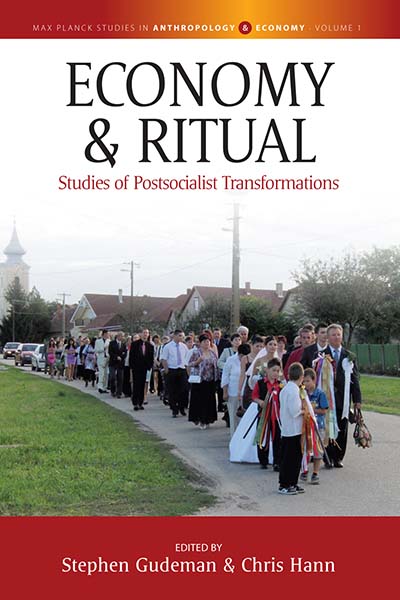“The result of these six ethnographies is a compelling case for attention to the ritual aspects of the economy and the economic aspects of ritual. But this is a revelation that anthropologists are completely prepared to receive, given our basic commitment to holism and cultural integration. The chapters feature useful descriptions of ritual economics and economic rituals, as well as the invention of traditions and non-market forms of production and exchange.” · Anthropology Review Database
“This volume links two fields of anthropological inquiry that were central to the development of the discipline, but have rarely been considered together in recent decades: the study of ritual and of economic systems and rationalities . . . It is a welcome and fresh contribution that has no direct equivalents currently in print.” · Sonja Luehrmann, Simon Fraser University
“[This book] makes an innovative contribution to the way we think about economic anthropology—rituals, celebrations, feasts, and the partly constructive ways that they are indelibly tied to economic practices.” · Russell Zanca, Northeastern Illinois University
According to accepted wisdom, rational practices and ritual action are opposed. Rituals drain wealth from capital investment and draw on a mode of thought different from practical ideas. The studies in this volume contest this view. Comparative, historical, and contemporary, the six ethnographies extend from Macedonia to Kyrgyzstan. Each one illuminates the economic and ritual changes in an area as it emerged from socialism and (re-)entered market society. Cutting against the idea that economy only means markets and that market action exhausts the meaning of economy, the studies show that much of what is critical for a people’s economic life takes place outside markets and hinges on ritual, understood as the negation of the everyday world of economising.
Stephen Gudeman, Professor of Anthropology at the University of Minnesota, has undertaken fieldwork in several countries of Latin America. During 2008-2012 he was co-director of the Economy and Ritual project at the Max Planck Institute for Social Anthropology in Halle. Gudeman has published extensively in journals and written or edited eight books, the most recent of which are Economy’s Tension (2008) and Economic Persuasions (2009).
Chris Hann is a Founding Director of the Max Planck Institute for Social Anthropology at Halle. He formerly taught anthropology at the Universities of Cambridge and Kent (Canterbury). Hann is co-author of Economic Anthropology. History, Ethnography, Critique (2011) and co-editor of Market and Society: The Great Transformation Today (2009).
LC: GN585.E852E46 2015
BL: DRT ELD.DS.152148
BISAC: SOC002010 SOCIAL SCIENCE/Anthropology/Cultural & Social; BUS069030 BUSINESS & ECONOMICS/Economics/Theory
BIC: JHMC Social & cultural anthropology, ethnography; JPQB Central government policies
Related Video
An interview of the economic anthropologist Stephen Gudeman, talking about his life and work. Filmed on 14th May 2010 by Alan Macfarlane and summary by Sarah Harrison. Generously supported by the Leverhulme Trust.
An interview of the anthropologist Chris Hann, talking about his life and work. Interviewed by Alan Macfarlane on 14 May 2010 and summarized by Sarah Harrison. Generously supported by the Leverhulme Trust.
available open access under a Creative Commons Attribution-NonCommercial-NoDerivatives 4.0 International License (CC BY-NC-ND 4.0) with support from the Max Planck Institute for Social Anthropology.


